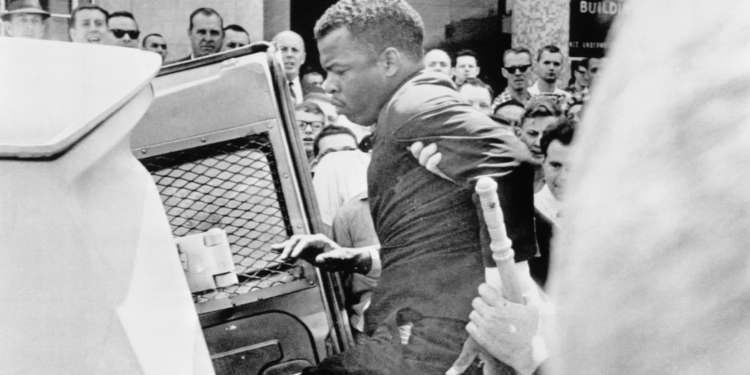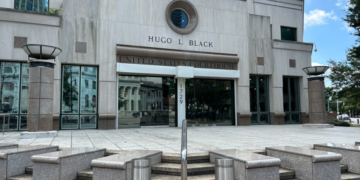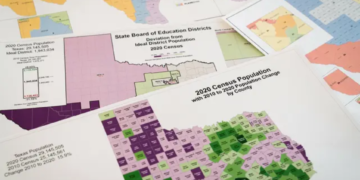March 13, 2025 Story by: Editor
Tennessee played a pivotal role in the early Civil Rights Movement, shaping the activism of the late John Lewis before he became a key figure in the historic Selma march.
Why It Matters:
Today, Tennessee is once again at the heart of a civil rights battle. Activists and lawmakers caution that the state is becoming a “testing ground for voter suppression,” with policies that could influence other states nationwide.
The Latest Developments:
Three Black women—state Sen. Charlane Oliver, Odessa Kelly of Stand Up Nashville, and Tequila Johnson of The Equity Alliance—are at the forefront of this fight in Tennessee. Ahead of the 60th anniversary of the Selma march, which played a crucial role in the passage of the Voting Rights Act of 1965, they spoke with Axios about their concerns.
With voting and civil rights facing potential rollbacks, civil rights advocates see this anniversary as a call to action.
Historical Context:
Before rising to prominence in the Civil Rights Movement, John Lewis trained in Nashville, where his experiences with early sit-ins shaped his commitment to nonviolent resistance.
That foundation guided him through Selma and later to Atlanta, where he spent decades championing voting rights in Congress.
“Tennessee is where John Lewis cut his teeth,” Oliver said. “And now we’re watching it become a testing ground for voter suppression.”
The Bigger Picture:
Since the Supreme Court’s 2013 ruling in Shelby County v. Holder, which weakened the Voting Rights Act, Oliver argues that Tennessee has seen a rise in restrictive voting policies.
- Laws such as stringent voter ID requirements, bans on using college student IDs for voting, and the reduction of polling places in predominantly Black communities are part of a broader effort to limit voter access.
- The state has one of the lowest voter turnout rates and some of the strictest disenfranchisement laws for individuals with past convictions.
- Tennessee is also the only state that mandates child support payments before restoring voting rights. Oliver likens this to a modern-day poll tax.
What They’re Saying:
Johnson draws parallels between history and today, noting that the barriers Black voters now face mirror those from the past—such as literacy tests requiring people to count soap bubbles, estimate jellybeans in a jar, or recite the Constitution from memory.
Current Landscape:
The Trump administration’s rollback of successful diversity initiatives, Johnson argues, has exacerbated these issues.
“This moment feels both familiar and unfamiliar,” Oliver said. “The threats we face today are even more dire because of who is in the White House.”
“When John Lewis marched in Selma, they could at least pressure the administration to act. Now, we have leaders trying to take us back—not just pre-Civil Rights Movement, but to an era where Jim Crow was law.”
Kelly shares similar concerns.
“I’m enraged,” she said. “My parents were born in the ’40s during Jim Crow, and to see the civil rights bill being torn apart bit by bit, it’s heartbreaking. We have to rethink how we build and protect the community.”
“The policies that alarm people nationally? They were tested in Tennessee first,” Kelly said. “We’re seeing voter suppression laws, attacks on public education, and corporate influence shaping policy in ways that harm marginalized communities.”
The National Scope:
With the Supreme Court weakening voter protections, it has become increasingly difficult to challenge restrictive voting laws.
“These laws aren’t just happening in a vacuum,” said Marc Morial, president of the National Urban League. “Since Shelby, we’ve seen a flood of voter suppression bills designed to make it harder for people to vote.”
The Way Forward:
Morial emphasized the need for the John Lewis Voting Rights Act, calling it “essential to restoring the protections we lost and ensuring every American has the right to vote without obstruction.”
The Bottom Line:
Civil rights advocates stress that this is just the beginning of a renewed fight for voting rights.
“We are not backing down,” Morial said. “We will challenge these policies in the courts, at the ballot box, and in the streets.”
“We can’t wait until laws pass to fight back. We must anticipate these attacks and organize now,” Johnson added.
Oliver echoes the sentiment: “John Lewis showed us the way. Now it’s on us to keep marching.”
Source: Axios

















